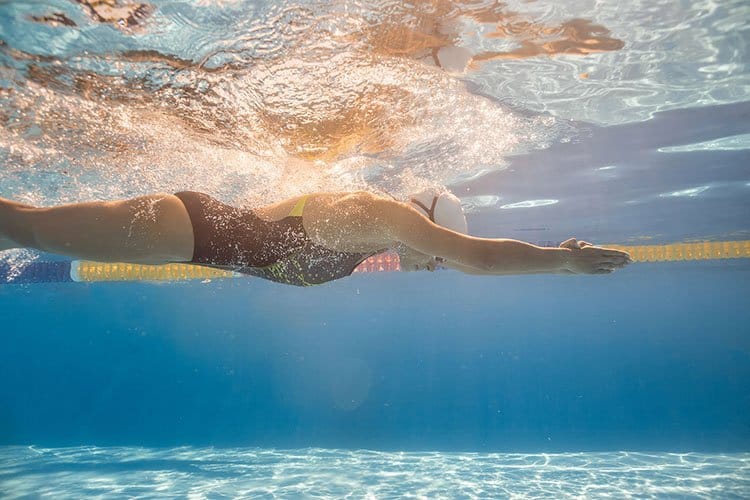How long will it take for me to learn swimming? This is probably one of the commonly asked questions of an individual who is taking or planning to take swimming lessons. However, the length or duration of learning greatly depends on the learner. This is due to the various factors that affect the learning process. Examples of these factors are age, fitness level, fear of water, and frequency of lessons. Remember that every individual learns differently, so it is quite difficult to exactly determine the specific number of hours having swimming lessons.
Let’s start with the general guidelines.
Adult Learning
For adult individuals who learn at an average pace and are not afraid of water, around 20 hours of lessons over the course of a few months may be enough to acquire the skills they need. There are also individuals who may require extra hours for them to learn the fundamentals of swimming. In reality, there is no exact time frame for everyone.
It is highly recommended for adult learners to enroll for regular swimming lessons at least once a week. There are different levels available and depending on the skills and knowledge one has in swimming. For instance, beginner level sessions will teach the learner how to breathe and move in the water. These will likewise help an individual become stronger and more confident.
Once a learner has acquired the necessary skills and confidence required for the level, he/she can then move on to the more advanced level and polish the techniques to get a better work-out or gain competitive experience.
The swimming lessons an adult will have will help strengthen their muscle memory. Moreover, repetitive movements will help the body remember them. Over time, breathing and stroke techniques will feel natural.
If you want to learn faster, try to swim often. Get your kickboard, paddles, and goggles, and splash around the pool. Try to spend more time in the water and enjoy the learning process. Also, try not to stress yourself with the length of learning to be a good swimmer.

Kids learning how to swimming
Just like adults, many parents want to know how long it takes for their little ones to learn to swim. This also goes with the period of time for them to acquire the most important water safety skills. Again, the length of learning swimming depends on every child. Learning the techniques and skills of swimming vary from every child and to different factors.
Once a child is able to learn the basic skills and techniques, it is important to have consistency. For instance, they need to visit the pool more often to hone the acquired skills and stroke techniques.
Consistent swimming schedule will help develop muscle memory and keep the progress going. However, if your child gets sick, give them time to recover, then resume the swimming lessons as soon as possible. Swimming twice-thrice a week help children learn faster and improve their confidence in the water.
Children who have been introduced and exposed in water will also help them overcome their fear and apprehensions. As such, they will also learn the techniques and skills needed in swimming.
Other factors that affect the length of learning swimming include physical abilities, coordination, and motor skills. Kids with natural abilities will totally help in learning swimming faster. On the other hand, children who may have difficulties in motor skills may take longer to learn. Parents and instructors are then recommended to practice patience and work at the pace of the child. Swimming will definitely help a child improve their motor skills and coordination.
Conclusion
Learning how to swim is an investment in everyone’s safety, physical and emotional wellbeing. In addition to these, learning how to swim is a lifelong skill that is worth investing with your time, effort, and money.
Learning how to swim is fun and exciting, and that should be maintained by the instructors as well as the swimming venue. Experts believe that when the fun is incorporated in their curriculum learning is faster and easier. This is actually true to most kids and adults.
Parents can actively participate in the learning process of their kids. As such, their child may learn faster and more efficiently.

